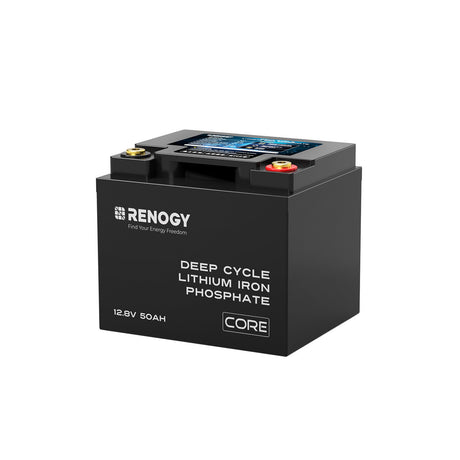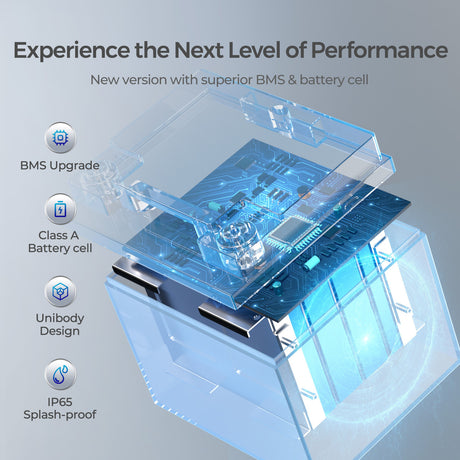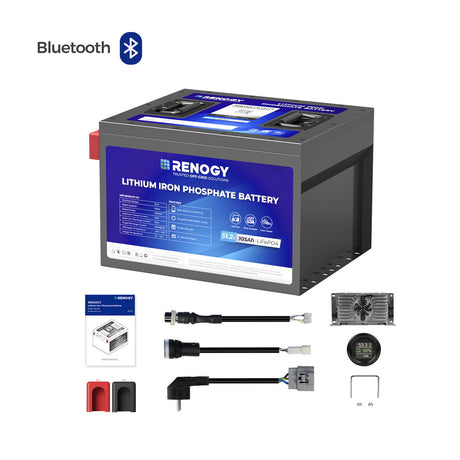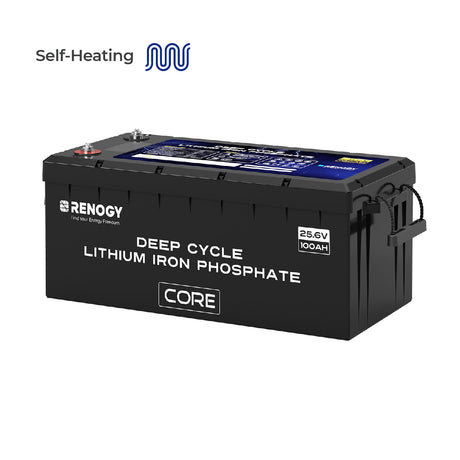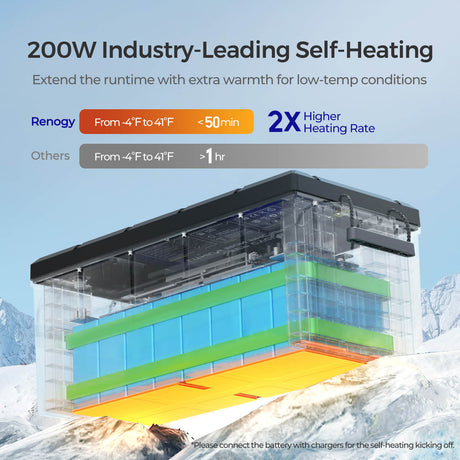- Hot
Renogy
12V 300Ah LiFePO4 Battery w/ self-heating function | Core Series
Low-temp cut-off2x faster self-heatingFrom C$1,261.39C$1,308.99Unit price /Unavailable - Hot
Renogy
Mini Size 12V 100Ah/200Ah/300Ah LiFePO4 Battery
Low-temp cut-off31% Smaller & 70% LighterFrom C$339.19C$351.99Unit price /Unavailable - New
Renogy
12V 200Ah LiFePO4 Battery w/ Bluetooth | Core Series
Low-temp cut-offReal-time monitoringFrom C$741.99C$769.99Unit price /Unavailable - New
Renogy
12V 100Ah Trolling Motor LiFePO4 Battery | Core Series
Low-temp cut-offIP67 & Bluetooth 5.3From C$402.79C$417.99Unit price /Unavailable Renogy
12V 50Ah Deep Cycle Lithium Iron Phosphate Battery | Core Series
5000 cycles60% lighterFrom C$222.59C$230.99Unit price /UnavailableRenogy
48V 50Ah LiFePO4 Battery w/ Self-heating Function | Core Series
Low-temp cut-offAuto heating below 32°FFrom C$763.19C$791.99Unit price /UnavailableRenogy
48V 105Ah Golf Cart Lithium Iron Phosphate Battery
400A@30S peak charge5-day auto-off featureC$2,437.99C$2,529.99Unit price /Unavailable- Sold out
Renogy
24V 100Ah LiFePO4 Battery w/ self-heating function | Core Series
Low-temp cut-off5000 cyclesFrom C$956.99Unit price /Unavailable - New
Renogy
12V 20Ah/100Ah Trolling Motor LiFePO4 Battery | Core Series
Low-temp cut-offIP67 & Bluetooth 5.3From C$137.79C$142.99Unit price /Unavailable
Frequently Asked Questions
Which is better, LiFePO4 or Lithium battery?
Which is better, LiFePO4 or Lithium battery?
LiFePO4 batteries are generally safer and more stable compared to traditional lithium-ion batteries. While lithium-ion offers higher energy density, LiFePO4 delivers superior cycle life, thermal stability, and resistance to overheating. This makes LiFePO4 batteries an ideal choice for solar systems, RVs, and off-grid applications in Canada, where safety, reliability, and long lifespan are critical in diverse and sometimes extreme weather conditions.
What is the lifespan of a LiFePO4 battery?
What is the lifespan of a LiFePO4 battery?
A high-quality LiFePO4 battery typically lasts 8–12 years, or 3,000–5,000 charge cycles. With proper maintenance, Canadian users often achieve more than a decade of dependable service. Unlike lead-acid or traditional lithium-ion batteries, LiFePO4 cells degrade much slower, meaning you get long-term value for your investment, whether used in renewable energy, marine, or RV applications.
Is it bad to keep LiFePO4 batteries fully charged?
Is it bad to keep LiFePO4 batteries fully charged?
Yes, storing LiFePO4 batteries at 100% charge for extended periods can reduce overall lifespan. While charging to 100% is safe during daily use, it is not recommended for long-term storage. For best results, store your batteries around 50–70% charge. This practice helps prevent unnecessary cell stress and ensures your batteries remain healthy, especially during Canadian off-seasons when equipment may sit unused.
How cold is too cold for LiFePO4 batteries?
How cold is too cold for LiFePO4 batteries?
LiFePO4 batteries should not be charged below 0°C, as this can cause lithium plating and permanent damage. They can safely discharge down to –20°C, though performance decreases in colder weather. In Canadian winters, it’s recommended to use insulated storage or battery heaters for reliable charging and discharging, ensuring your power system performs well even during sub-zero temperatures.
Do LiFePO4 batteries need maintenance?
Do LiFePO4 batteries need maintenance?
LiFePO4 batteries are virtually maintenance-free, unlike lead-acid batteries that require water top-ups and equalization. The only care needed is proper charging, avoiding extreme cold during charging, and ensuring terminals remain clean and secure. For Canadians using batteries in off-grid solar, RVs, or marine systems, this low-maintenance advantage translates into peace of mind and long-term savings on upkeep.









